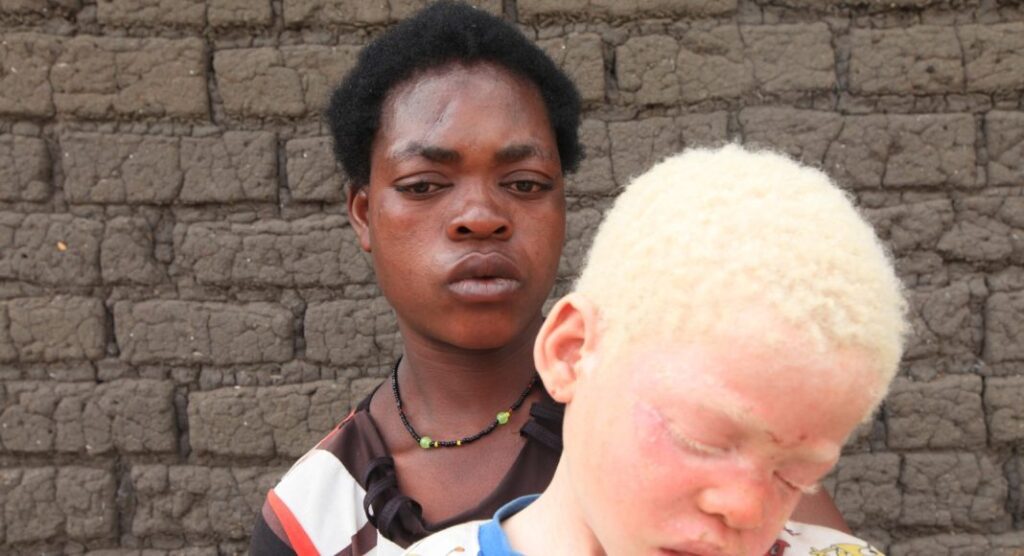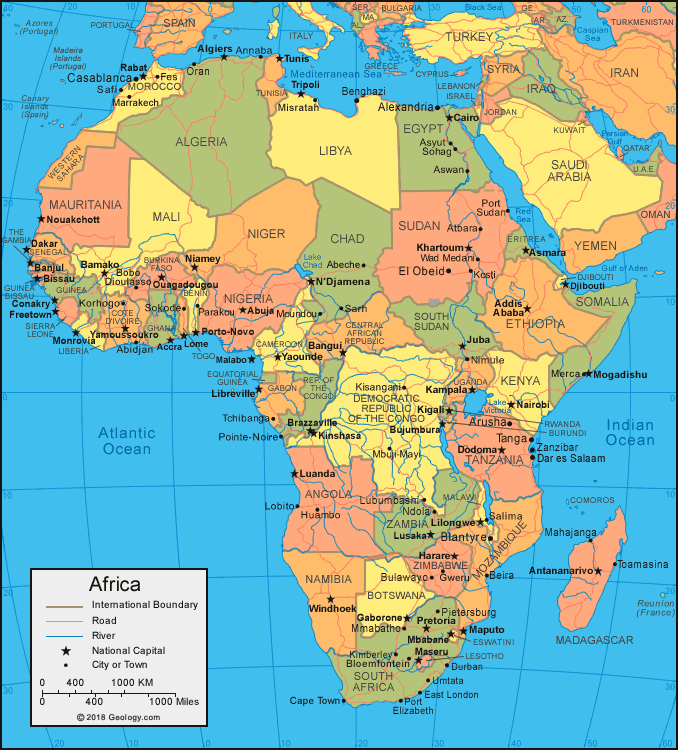Albinism is an inherited condition leading to a very light skin, hair and eyes. The question: ‘What is albinism?’ is treated in detail elsewhere on the present site (click here to access the information).
There’s a persistent superstition that organs and other body parts of a person with albinism contain magical or supernatural powers. Hence persons with albinism are often targeted by criminals who attack and/or murder them. In their social environment people with albinism are often discriminated, insulted or otherwise maltreated.
On multiple occasions I have drawn attention here on the plight of persons with albinism in countries in west, central, eastern and southern Africa including Mali, Nigeria, Burundi, the DRC, Tanzania, Mozambique, Eswatini (former Swaziland), Zambia, Malawi, the Republic of South Africa), Namibia and Madagascar. You may access the relevant posts and articles by using the dropdown menu under ‘African countries’ and/or the search button.
Moreover, those interested inn previous posts may click the following three links with access to reports on violence against persons with albinism in nearly 30 African countries:
Africa’s shameful acts of racism: the plight of persons with albinism (PLWA) in Africa
Devastating 2019 report on attacks of persons with albinism in 28 African countries
Shocking report on rural infanticide, violence against children accused of witchcraft, and ritual attacks against children with albinism in 19 SSA countries
The article presented below focuses on the situation of persons with albinisme in Angola and elaborates further on the plight of people living with albinism in various SSA countries.
(FVDK).
The plight of persons with albinism in Sub-Saharan Africa

Published: April 1, 2024
By: Atlas News
What You Need to Know:
81 families with Albinism in Angola’s Bié Province have received assistance totalling nearly $12,000 dollars (10 million kwanzas) in the first phase of a social protection program aimed at providing support to Angola’s most vulnerable.
This current program operates under the ‘Kwenda Program’ – a government program focused on creating policies to support the country’s poorest and most vulnerable residents.
The program has received 320 million USD from the World Bank as well as 100 million USD from Angola’s National Treasury.
Alongside the financial support, sunscreen and other sun protection materials have been distributed to albinos across the country. Lack of sun protection poses a major health risk for albinos in Africa, with up to 90% dying before the age of 40.
There are an estimated 6,818 people living with albinism in Angola who often face social exclusion, which contributes to their continued impoverishment as a large part of the stigma around albinism has to do with the fact that witchcraft is heavily prevalent in Southern Africa.
The Details:
Across Southern Africa, particularly Malawi, South Africa, Tanzania, and Burundi, people with albinism are thought to hold supernatural powers. As a result, the killing of albinos in order to use their body parts in various rituals is somewhat common.
The belief in many rural communities across Southern Africa is that the use of the body part of an albino in a witchcraft ritual may bring wealth, power or protection to the individual the ritual is intended for.
Albinism refers to the inability of the body’s skin cells to produce melanin, melanin is responsible for the colouration of eyes, hair and skin. Thus, those with albinism appear extremely pale.
In Tanzania, albinos are referred to as ‘zeru zeru’ which translates to ‘ghosts.’
Additionally, there is a large trade in the body parts of albinos, with the Office of the UN High Commissioner for Human Rights claiming an entire albino corpse can be sold for upwards of $75,000, while albino arms or legs can be sold for up to $2,000.
So, What Now?:
Angola’s social program signals a positive step towards the protection of albinos in the country. However, Angola is still an extremely impoverished country with 32% of the population living under the national poverty line, In rural areas that number jumps to 54%.
Thus, although this program will bring relief for many affected albino families, a wider effort to combat impoverishment and raise living standards is needed across the country.
Source: 81 Angolan Albino Families Receive Assistance From Social Protection Program

